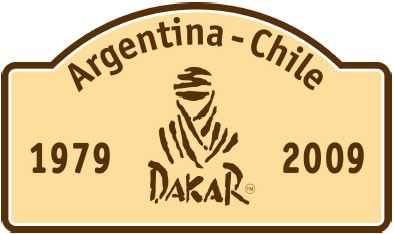Great African Run shows the Dakar rally how it's done
 Budapest - A motley fleet of more than 200 vehicles set off from Budapest on Saturday on the first stage of the Budapest-Bamako rally, a 9,000-kilometre trek that will take them across Europe and the Sahara Desert to Mali in West Africa.
Budapest - A motley fleet of more than 200 vehicles set off from Budapest on Saturday on the first stage of the Budapest-Bamako rally, a 9,000-kilometre trek that will take them across Europe and the Sahara Desert to Mali in West Africa.
With Dakar Rally exiled to Latin America by the threat of terrorism, it had fallen to Hungary to organize The Great African Run.
Hundreds gathered to bid the drivers bon voyage as they passed through the starting posts amid applause and pumping rock music. The starting point was a huge square next to Budapest's city park, once the scene of huge May Day rallies presided over by a gargantuan statue of Joseph Stalin.
On this crisp winter morning, the only relics of Hungary's communist days were a handful of ramshackle vehicles, including a red Lada and a 1960s fire engine, whose owners were hoping, with admirable optimism, to drive them 9,300 kilometres, barring detours, to Bamako in one piece.
Norwegians Knut Grosland and Morten Briskelid, calling themselves the Fjord Riders, were about to set off for Bamako in a Russian-made Lada Riva. Five men from the north east of England, The Tyne2Timbuktu team, were ready to cross the Sahara in a zebra-striped minibus.
There was even at least one example of an iconic East German Trabant car on the starting line.
The "Trabi" was dwarfed a large number of SUVs and chunky four-wheel-drives, possibly liberated for two weeks from the demeaning chore of ferrying children to school. Altogether, 212 cars, 31 motorcycles, six lorries and three buses set off on Saturday morning.
Participants were divided into two classes. There were the serious racers, who will have to contend with off-road courses and special puzzles and other mental challenges. The aim of those in the "touring" category, into which the more colourful competitors fit, is simply to get to Bamako by hook or by crook over the next fortnight.
"My current feeling is that I don't think I have left anything at home. Anyhow, we only have three aims: not to get a puncture, that the car will hold out, and that we'll get home in one piece," said participant Miklos Borsa. The Hungarian television newsreader was perhaps speaking for all teams in the touring category.
Among the potential pitfalls that await them are land mines in Mauritania, sandstorms, and breakdowns - of engines, but possibly also of nerves. That is in addition to the basic problem of navigating across a desert where a "road" is often a notional concept rather than a physical reality.
Participants are asked to report the GSM coordinates of any obstacles, craters or other dangers that they come across as they make their way across the desert.
However, the organizers warned the participants not to take the European stages too lightly, either. "The road between Szekesfehervar and Kormend in Hungary is the one where an accident is most likely to happen," warns a 40-page manual given to all teams.
"This will be our most difficult rally to date," said the Hungarian organiser of B2 Andras Gal Szabo, aka Andrew G Szabo.
Szabo and several friends dreamt up the Great African Run while sitting round an atlas in a kitchen on New Year's Eve, 2004. By December 26, 2005, 39 cars, 2 motorcycles and a mobile home were on the starting line in Budapest for the first B2 rally. Now it has snowballed into a major tourist event for several poor West African countries.
Besides being an exhilarating two weeks in what looks like an Afro-European answer to the 1981 US film The Cannonball Run, there is a more serious side to the Great African Run.
The event is also about helping Africa. Last year, entry fees were used to build a well that supplies 300 with fresh water in the Mauritanian village of El Geddiya.
It was supposed to be painted red, white and green, in honour of the Hungarian flag. A mix-up meant it ended up red, yellow and green, but locals made amends by naming the surrounding palm glade "Parc Budapest".
Other charitable acts included a donation of medical equipment to doctors in a Bamako slum. The lorries following the routes to Bamako this year are carrying similar cargoes of donated clothing and essential equipment, which will be distributed along the way.
"2009 is a watershed year in the life of Budapest-Bamako," said Szabo in a recent interview.
"I think that B2 will gradually replace Dakar... while still remaining true to its roots, with the touring class remaining open to Polski Fiats, Ladas, Ikarus buses, Minis, ice cream vans, and adventurers who know no fear," he said. dpa